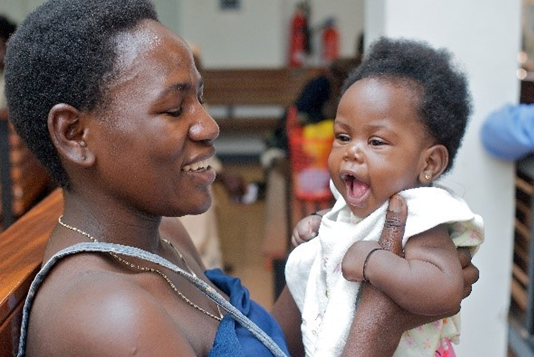
STRENGTHENING OF COMMUNITY HEALTH AND INTEGRATION OF COVID-19 PROGRAMMING in Angola
With funding from ExxonMobil, we implemented the Sequele Integrated Community Malaria Project. This community-based malaria program has as a core component of training families on key malaria practices with an emphasis on promoting use of Long Lasting Insecticide treated Nets (LLINs), Intermittent Preventive Treatment of malaria in pregnancy (IPTp), and correct and early (within 24 hours of onset of symptoms) management of malaria through a network of 72 Community Health Workers (CHW). Additionally, the project targeted communities to improve health practices for acute respiratory infections, diarrhea diseases, Expanded Program on Immunization (EPI) that targets vaccine preventable diseases, nutrition, HIV/AIDS, water, sanitation, and environmental hygiene.
With the outbreak of the COVID-19 pandemic, the project supported sensitization at the community level on COVID-19 prevention measures. Despite cancellation or delay in some planned project activities because of COVID-19 related restrictions of movement and gathering, project staff and partners were successful in remaining engaged with their community not only by incorporating new safety measures but also innovative solutions.
Highlights of results in 2020:
- Trained 72 Community Health Workers (CHW) on COVID-19 and
- Malaria prevention and control
- Led community level sensitization on malaria and COVID-19 through 17,997 home visits, and 1,409 Health talks
- Referred 1,823 people with different symptoms including children under five, pregnant women and adults to health facilities.
- 418 cleanup campaigns to reduce mosquito breeding sites with over 5,300 community members participating
- Adopted mobile messaging to community members to allow for continued community sensitization during the COVID 19 pandemic
- Fumigation of 28,300 homes supported by CHW for malaria prevention
- Over 125 new latrines were constructed by families in the project neighborhoods
- For families with illiterate parents, produced 53,800 IEC materials for children can read and explain to their parents at home
- Reinforced surveillance for COVID-19 through National call line and implemented a surveillance system for COVID-19 at the district level. Organized 4 integrated fairs to sensitize families on COVID 19 and Malaria prevention measures as well as screen for hypertension, diabetes which are main co morbidities for high risk of COVID-19


